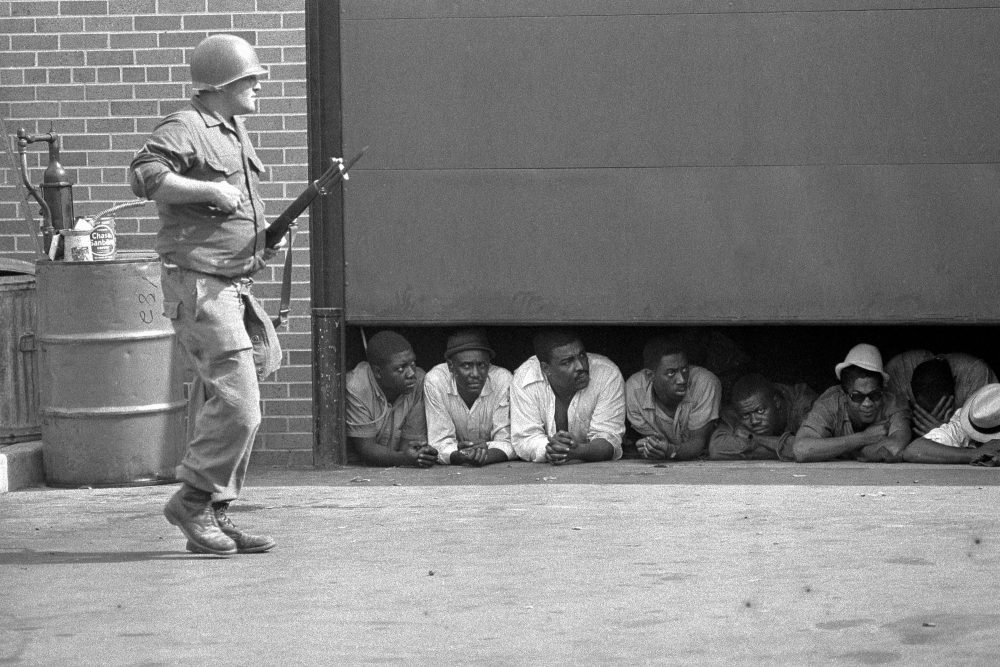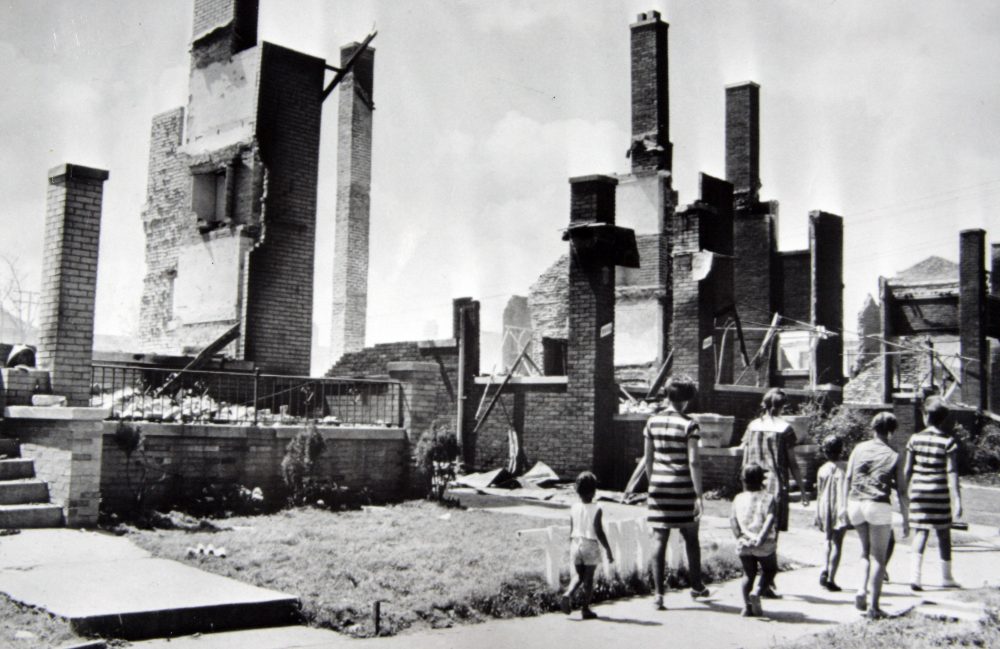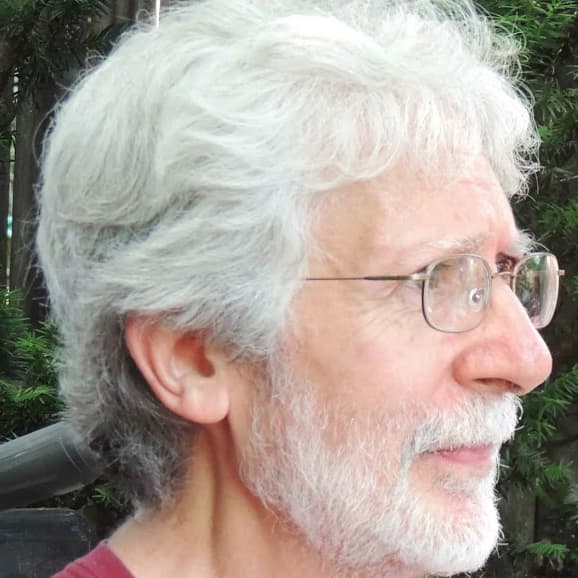Advertisement
Commentary
Racism Diminishes Us All, Even White Men Like Me

Fifty years ago, the wounds and rage among Detroit's black population ignited during five days of violence. The response by police and National Guard troops left 43 people dead. These events have been much in the news; and they seem inescapably relevant to our current situation, with its police violence, mass incarceration of African-American men and pervasive gaps in wealth and social standing according to race.
This 50th anniversary has personal significance for me. I grew up in Detroit in the 1950s and '60s, a white Jewish boy living in a city divided by race and class. When the city went up in flames in the summer of 1967, I was 400 miles away, working at a camp in Michigan's Upper Peninsula. But I had lived among the racial tensions that finally erupted. I know the streets where the violence happened, the boarded buildings and vacant lots that have scarred the city ever since.
I attended elementary school in a Detroit neighborhood that was tenuously integrated until the influx of black families reached a tipping point and Jews fled to neighborhoods where racial lines were not yet being crossed. I had black neighbors and classmates, but I formed no close connections with them; living in proximity, there were also racial lines we did not cross. Later I went to large junior high and high schools which, by drawing students from black and white neighborhoods, gave the appearance of being integrated. But my honors classes, with rare exceptions, were all white.
The idea that whites should attend to our own injuries can be distorted into claims that we all suffer equally from racism. We don't.
Even as I was developing a strong belief in civil rights, I lived a reality of racial inequality. I was absorbing societal assumptions about people of color being less than and other. I learned to take my all-white honors classes for granted and to accept segregation within the facade of integration as a normal state of affairs.
My belief in civil rights was driven by moral outrage at racial injustice, but also by noblesse oblige -- the notion of helping those disadvantaged by their social conditions. At the time it never occurred to me that I, as a white person, was also being diminished by the racialized system that gave me such evident advantages.
Critical to that diminishment was a fracturing of my own self, a loss of wholeness of spirit. Mab Segrest, in her essay “Of Soul and White Folks,” asks how whites “could participate in such an inhuman set of practices and beliefs ... and not be, in our own ways, devastated emotionally and spiritually.” Sustaining the brutalities of racial oppression, she says, requires the “the soul-destroying anesthesia necessary to the maintenance of power.”

As an adult, I have had episodes of unwanted racist thoughts. For periods of time, I found myself helpless against this onslaught. Alien thoughts hung in my psychic air, taunting, revealing me to myself as something despicable. My shame was too deep to fathom, my sense of self fractured by this intrusion of hateful ideas into my own psyche. All I knew to do was to keep the thoughts secret and try as hard as I could to push them away.
The benefits of race privilege (unevenly distributed among whites based on class and gender) are material and social — wealth, power, status. The ways that whites are injured by racism are murky, internal, psychological, unpleasant and hidden from view. The notion that racial equality would limit us materially but benefit us through reclaiming the wholeness of our humanity — this seems unbearably complex.
There must be 50 ways to get racism wrong, and another 50 ways to propose solutions that end up going nowhere. The idea that whites should attend to our own injuries can be distorted into claims that we all suffer equally from racism. We don't. Whites benefit from racism materially, and suffer from it psychologically and spiritually. People of color suffer from racism materially, and suffer from it psychologically and spiritually. The individual and collective traumas experienced by those socially defined as inferior and other is orders of magnitude worse than the pain experienced by those of us defined as superior. That said, our suffering as whites is real, it matters and it should be named.
Fifty years since the summer of 1967, so many of the wrongs that ignited the city of Detroit persist.
The enduring segregation that infects our lives, our experiences of shame, the ways that our own humanity has been crushed by racism — these are things that as white people we learn not to speak about publicly. Too often, we shield them from our own awareness.
But what if we were to stretch ourselves? If white people could recognize our own racialized suffering, what doors might that open? I'm reminded of Pablo Neruda's poem “Keeping Quiet” with this beautiful image: “...the peasant gathering salt / would look at his torn hands.” Just to stop and look at how racism hurts us — what an amazing thing that would be!
What if white people could talk to each other publicly, vulnerably, sharing our deeply held stories about racism and our fractured humanity? What if we could engage in serious cross-race dialogues about shame and splintered selves, about trauma and pain and how they are transmitted from generation to generation? What if these dialogues were to move white people to redefine “self-interest” to include wholeness of spirit and the healing of psychic wounds?
Fifty years since the summer of 1967, so many of the wrongs that ignited the city of Detroit persist. Isn't it time for white people to recognize that we share a common interest with people of color in overcoming racism?
